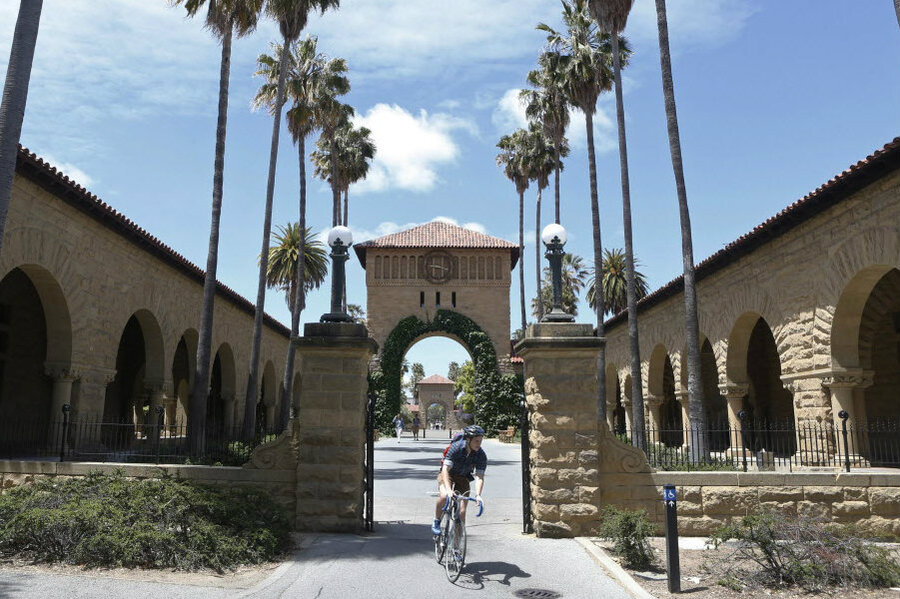Why University of California is dumping fossil fuel stocks
Loading...
The University of California system was the latest organization to sell off $200 million worth of fossil fuel stocks from its investment fund, it announced yesterday.
UC’s chief investment officer Jagdeep Singh Bachher made the announcement at a meeting of the UC regents’ investment committee yesterday. He explained that a “slowing global demand, an increasingly unfavorable regulatory environment, and a high threat of substitution pose insurmountable challenges to coal mining companies,” encouraged the committee’s decision to divest from coal and oil sand companies, The Los Angeles Times reported.
But relentless public pressure also played a role. Students, faculty, and alumni across the university’s 10 campuses have been pressuring administration for several years to divest from the fossil fuel holdings in its $98 billion investment portfolio.
Their efforts have been buoyed by a national campaign led by activist group 350.org, which has persuaded 390 institutions worldwide – from Stanford University to The Guardian Media Group to the Rockefeller Brothers Fund – to commit to selling their investments in oil, coal, and natural gas drilling companies.
Burning fossil fuels to produce energy releases the vast majority of the heat-trapping gases scientists say are responsible for raising average global temperatures.
Divestment is a protest tool that’s been used for decades. The point is to shame companies and governments into social and environmental reforms in areas like land mines, sweatshop labor, and racial injustice, instead of relying on government policies. In the 1980s institutions across the United States sold their stocks in companies working in South Africa to protest the country’s system of racial segregation, called apartheid.
Though the tactic is credited with helping to end apartheid, experts disagree on whether divestment is an effective tool.
“If you want to do something about climate change, then you have to do something about prices,” Frank Wolak, an economist at Stanford University told The New Republic. “You are not going to solve the problem by beating up on companies.”
Still, many believe that it’s an effective way to bring attention to urgent issues like climate change. Just last week, the California state legislature passed a bill that requires two large state pension funds – Calpers and CalSTRS – to divest from coal-mining companies.
Stanford University and the University of Maine this year have also divested. Despite aggressive student and faculty protests, Harvard University and Yale University are among the institutions that have so far decided to not divest.
“We will continue to confront the problem of climate change in ways that a university as an academic institution most meaningfully can and should – through research, education, innovative sustainability practices, and thoughtful engagement with others who can help the world find real solutions to such a complex and consequential challenge,” said a letter to the editor of the Boston Globe in April from Harvard’s president, Drew Faust.
Meanwhile, at UC campuses, students are are celebrating this week’s victory, though they say it’s not enough.
“I think it’s a really good move by the university. But it doesn’t mean we are going to stop pushing for full divestment soon,” Fossil Free UC's Mr. Phinney told the Los Angeles Times.
According to the newspaper, UC still has about $10 billion worth of energy industry investments and has not changed its investment policy to avoid fossil fuel stocks in the future.







